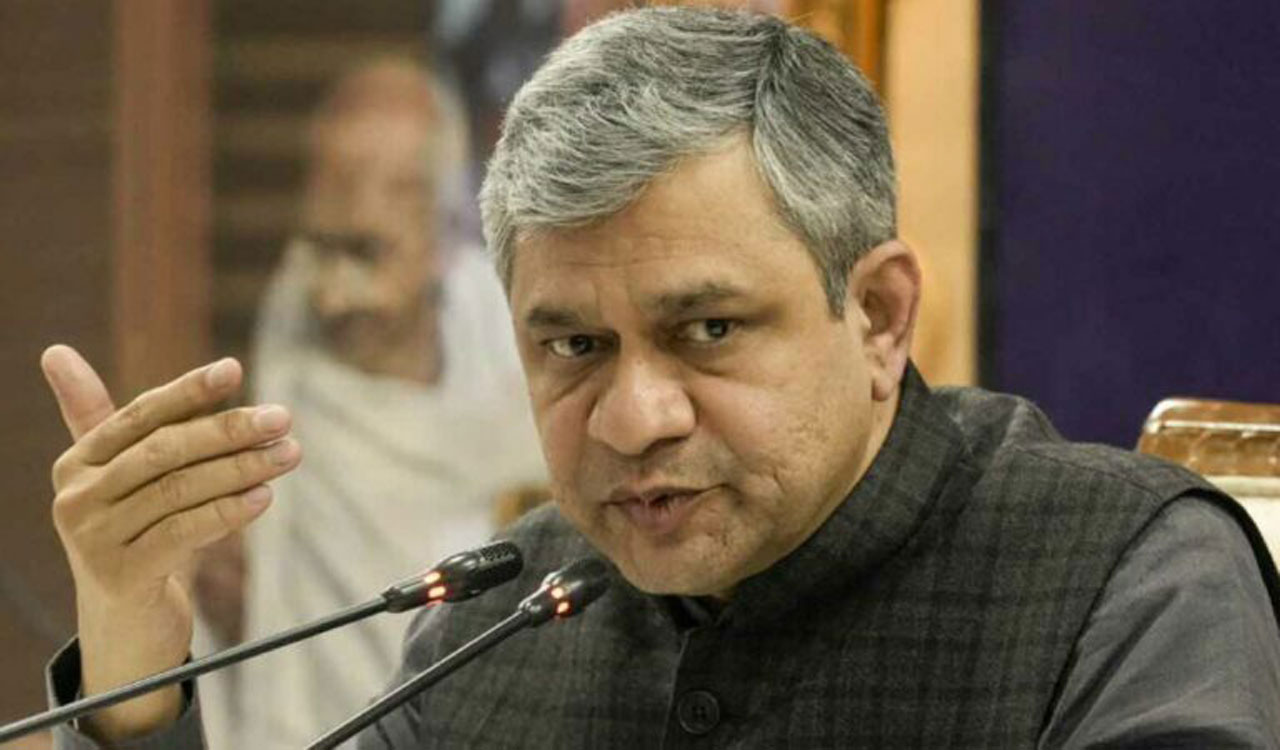Despite being in the Himalayan region and running through tough terrains, project works are being carried out on a 24×7 basis for their early completion.
Published Date – 1 February 2024, 11:36 PM

File Photo of Ashwini Vaishnaw
New Delhi: Railway Minister Ashwini Vaishnaw said on Thursday that the gross budgetary allocation for railway infrastructure projects in the northeast region for the FY 2024-25 is Rs 10,369 crore.
Interacting with mediapersons from the northeast virtually from Delhi, Vaishnaw said that Rs 10,369 crore is 388 per cent higher as compared to the average budget allocation of Rs 2,122 crore during 2009-14.
He also said that 60 stations in the northeast region are being redeveloped with world-class amenities/facilities. The minister informed that the ‘One Station, One Product stalls’ operational all over the northeastern region are providing a direct selling market for locally-produced items which are getting good response from the passengers.
An investment of Rs 81,941 crore is being made in the entire northeastern region for the development of railway infrastructure, he said. Vaishnaw also said that physical progress of all the ongoing projects in the northeast are advancing at a good pace.
Despite being in the Himalayan region and running through tough terrains, project works are being carried out on a 24×7 basis for their early completion.
The minister also informed that this year’s budget allocation shows unprecedented growth in several segments such as new line and doubling projects, track renewal works, traffic facilities, road safety works, bridge works, signalling, workshop modernisation and customer amenities etc.
Vaishnaw said a capital outlay of more than Rs 2.5 lakh crore has been provided in the budget for the Indian Railways across the country. The minister informed that three major railway corridor programmes will be implemented as announced by Finance Minister Nirmala Sitharaman in her budget speech.
These are the energy, mineral and cement corridor; port-connectivity corridor; and high-traffic density corridor. They will improve logistics efficiency and reduce transportation cost that will improve safety for passenger trains as well.




